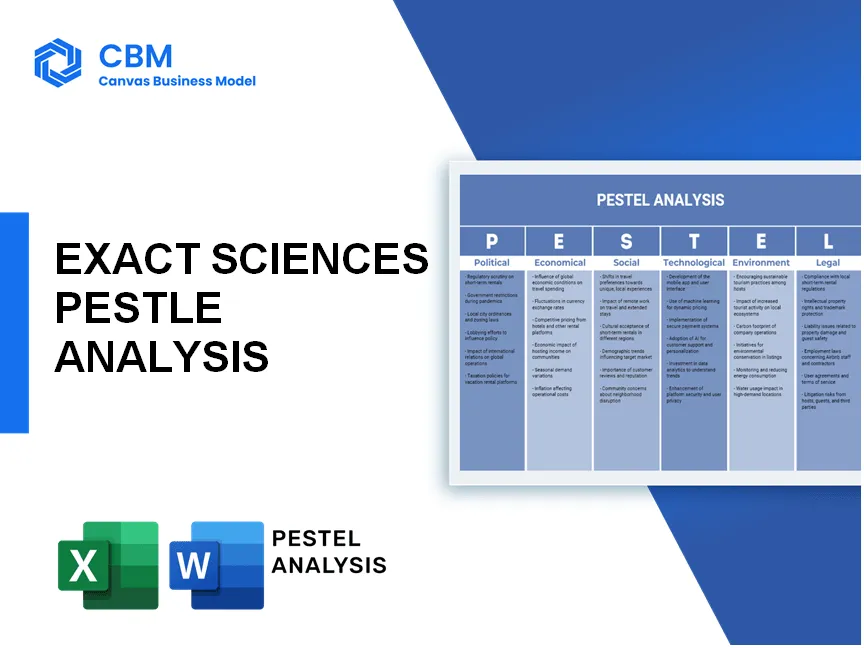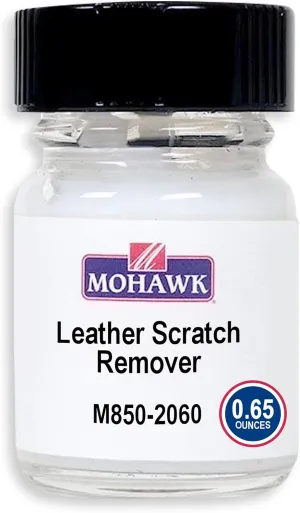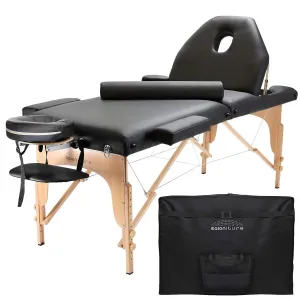In the ever-evolving landscape of healthcare, understanding the myriad influences on companies like Exact Sciences is paramount. This PESTLE analysis delves into the complex interplay of political, economic, sociological, technological, legal, and environmental factors that shape the development of Cologuard, a revolutionary non-invasive colorectal cancer screening test. Explore how each of these elements intertwines to impact the company's strategies and contribute to its mission of enhancing early detection and prevention of cancer.
PESTLE Analysis: Political factors
Regulatory support for cancer screening initiatives
The U.S. Preventive Services Task Force (USPSTF) recommends that adults aged 45 to 75 receive colorectal cancer screening, which has significantly influenced funding and regulatory support. In 2021, the American Rescue Plan provided $1.9 trillion in COVID-19 economic relief, which included additional funding for preventive services such as colorectal cancer screening.
Government funding for colorectal cancer research
The National Institutes of Health (NIH) allocated approximately $69 million in 2022 for colorectal cancer research. Federal funding trends have indicated an annual increase of about 5% in the budget for the National Cancer Institute, which also focuses on colorectal cancer research initiatives.
Policies promoting preventive healthcare
The Affordable Care Act mandated that private health insurance plans cover certain preventive services without charging a copayment, specifically including colorectal cancer screenings for individuals aged 45 and above. Studies showed that these policies have increased screening rates by about 12 million individuals from 2010 to 2020.
Influences from healthcare lobbyists
In 2022, healthcare interest groups spent over $1 billion on lobbying efforts. Key organizations, such as the American Cancer Society Cancer Action Network, have significantly influenced legislative initiatives tailored towards funding cancer screenings and research. Their lobbying efforts have successfully led to enhancements in Medicare benefits for preventive services.
Impact of changes in healthcare administration
Changes in U.S. administration have resulted in shifting healthcare policies. The Biden administration prioritized cancer as a public health issue, announcing a $1.8 billion investment plan aimed at enhancing cancer screenings and preventive care programs over the next five years. This plan is projected to increase colorectal cancer screenings by approximately 25% within this period.
| Political Factor | Statistical Data | Financial Amounts |
|---|---|---|
| CDC Screening Recommendations | Adults aged 45-75 | N/A |
| NIH Funding for Research | Approx. $69 million (2022) | $3.5 billion (annual budget increase for NCI) |
| Healthcare Lobbying Expenditure | Over $1 billion (2022) | N/A |
| Impact of Affordable Care Act | 12 million additional screenings (2010-2020) | N/A |
| Biden Administration's Investment Plan | Increase screenings by ~25% within 5 years | $1.8 billion |
[cbm_pestel_top]
PESTLE Analysis: Economic factors
Growth in demand for non-invasive medical tests.
The global non-invasive cancer diagnostics market was valued at approximately $24.8 billion in 2021 and is projected to reach around $45.58 billion by 2028, reflecting a CAGR of 9.25% from 2021 to 2028.
Cost-effectiveness of colorectal cancer screening.
The average cost of treatment for colorectal cancer can exceed $50,000 per patient, whereas the Cologuard test costs approximately $500. Studies indicate that every dollar spent on screening saves about $3.20 in treatment costs.
Economic burden of colorectal cancer treatment vs. prevention.
The economic burden of colorectal cancer in the U.S. was estimated to be around $15 billion annually. Preventive screening through methods such as Cologuard could reduce these costs significantly, highlighting the importance of early detection.
Impact of health insurance coverage on product access.
As of 2022, over 90% of U.S. insurers covered screening for colorectal cancer, which directly affects the accessibility of Cologuard. This includes coverage by Medicare, which pays for Cologuard for eligible patients.
Fluctuations in healthcare funding affecting growth.
The annual federal funding for cancer research has fluctuated around $6 billion, impacting innovations in screening technologies. Recent legislation, such as the Inflation Reduction Act, has allocated an additional $2 billion towards cancer prevention and control initiatives.
| Year | Market Value (Non-invasive Cancer Diagnostics) | Estimated Treatment Cost (Colorectal Cancer) | Annual Economic Burden (Colorectal Cancer) | Percentage Insurers Covering Screening |
|---|---|---|---|---|
| 2021 | $24.8 billion | $50,000 | $15 billion | 90% |
| 2028 (Projected) | $45.58 billion | $500 (Cologuard test cost) | Not Specified | Not Specified |
PESTLE Analysis: Social factors
Sociological
Increasing public awareness of colorectal cancer risks
As of 2021, approximately 150,000 new cases of colorectal cancer were diagnosed in the United States alone, highlighting the critical need for awareness. Studies indicate that awareness levels have risen significantly, with 75% of adults recognizing the importance of regular screenings.
Shift towards preventive health measures among populations
In 2020, preventive health services utilization increased by 10% in the U.S., driven by greater awareness of chronic diseases, including colorectal cancer. Furthermore, around 90% of healthcare professionals advocate for early screening methods as a standard practice.
Acceptance of at-home testing among consumers
A survey conducted in 2021 found that 61% of adults expressed a preference for at-home tests like Cologuard over traditional colonoscopies due to convenience. In 2022, Exact Sciences reported revenues of approximately $452 million, bolstered by a growing acceptance rate of at-home testing.
Demographic changes influencing screening participation
Statistics indicate that participation in screening programs is notably higher among individuals aged 50-75, with an estimated 70% of this age cohort complying with recommended screenings. By 2025, the population in this age group is expected to grow by 15%.
| Demographics | Screening Participation Rate (%) | Projected Population Change by 2025 (%) |
|---|---|---|
| Age 50-59 | 65% | 10% |
| Age 60-69 | 72% | 12% |
| Age 70-75 | 78% | 20% |
Community health initiatives promoting screening education
Various community health programs have launched initiatives that increased screening rates by up to 30% within targeted populations. In 2022 alone, funding for colorectal cancer education initiatives exceeded $72 million, illustrating a heightened focus on this critical public health issue.
- Community health workers reached 1.2 million individuals through educational programs in 2021.
- Public health campaigns have led to a reported 50% increase in screening among underserved communities.
PESTLE Analysis: Technological factors
Advances in diagnostic testing technologies
In recent years, the field of diagnostic testing has seen substantial advancements. Between 2018 and 2022, the global market for diagnostic testing reached a value of approximately $70 billion, with an expected growth rate of 5% annually through 2028.
Exact Sciences has actively contributed to this growth by enhancing its technology platform, which includes molecular diagnostics and analytics by leveraging advancements in DNA sequencing and next-generation sequencing (NGS).
Development of improved non-invasive screening methods
Exact Sciences has pioneered Cologuard, a non-invasive colorectal cancer screening test. In 2021, Cologuard achieved a sensitivity of approximately 92% for detecting colorectal cancer, demonstrating a significant improvement compared to traditional screening methods.
In terms of market performance, Exact Sciences recorded revenues of $1.086 billion in 2021, with Cologuard contributing approximately 90% of these sales.
| Year | Cologuard Revenue ($ million) | Colorectal Cancer Detection Sensitivity (%) |
|---|---|---|
| 2018 | 201 | 92 |
| 2019 | 382 | 92 |
| 2020 | 687 | 92 |
| 2021 | 978 | 92 |
Integration of AI in data analysis for test results
Exact Sciences has integrated artificial intelligence (AI) in its testing processes, particularly in data analysis, enabling enhanced diagnostic accuracy. In a recent collaboration with IBM Watson Health, they have been utilizing AI algorithms to analyze patient datasets for more effective treatment recommendations.
The use of AI is projected to potentially reduce diagnostic errors by up to 30%, streamlining the entire diagnostic workflow.
Enhancements in telehealth for test consultations
The COVID-19 pandemic accelerated the adoption of telehealth services within the healthcare industry. As of 2022, telehealth usage surged by approximately 154% compared to pre-pandemic levels. Exact Sciences has capitalized on this surge, facilitating virtual consultations for patients undergoing Cologuard testing.
In Q4 2022, Exact Sciences reported that over 50% of its consultations were conducted via telehealth, expanding access to testing.
Ongoing research in genetic testing for personalized medicine
Exact Sciences has invested in research to explore genetic testing's role in personalized medicine. The global market for genetic testing is projected to surpass $25 billion by 2026, with a CAGR of approximately 11%.
In 2021, Exact Sciences allocated around $250 million towards research and development in genetic testing, underscoring its commitment to personalized care and innovation in oncology diagnostics.
PESTLE Analysis: Legal factors
Compliance with healthcare regulations and standards
Exact Sciences operates within a stringent healthcare regulatory framework. Cologuard is classified as a Class II medical device under the FDA. The company must comply with FDA regulations, including premarket approval processes. As of 2022, Exact Sciences had reported approximately $484.1 million in revenue linked to Cologuard, thus evidencing a commitment to regulatory adherence.
Intellectual property protections for proprietary technology
Exact Sciences holds multiple patents for its proprietary technology related to colorectal cancer screening. As of 2023, the company had over 500 issued patents worldwide, protecting their innovative methodologies and products. The value of Exact Sciences’ intellectual property portfolio is critical, with an estimated worth exceeding $2 billion.
Liability issues associated with false negatives/positives
In 2022, Exact Sciences faced litigation concerning alleged false positives associated with Cologuard. With over 2.72 million tests performed, the potential risk of liability is significant. A study indicated that the test has a false positive rate of approximately 13%, potentially leading to unnecessary procedures and associated costs. The average cost of a colonoscopy is about $3,000, posing financial and legal repercussions for the company.
Changes in healthcare legislation impacting test usage
The American Rescue Plan Act of 2021 highlights that colorectal cancer screening is covered under the preventive care provisions. Notably, this legislation could increase Cologuard’s utilization rates, as approximately 78 million Americans aged 45 and older are eligible for screening under these new guidelines, expanding market possibilities for Exact Sciences.
Laws governing advertising and product claims
Exact Sciences must navigate regulations surrounding advertising as stipulated by the FDA and FTC. Any misleading claims can result in penalties. In 2022, Exact Sciences allocated approximately $50 million towards marketing expenditures, necessitating strict compliance to avoid legal challenges. Cologuard's advertising emphasizes its non-invasive nature, which is a vital factor in its market messaging. A study showed that awareness of Cologuard increased by 20% since 2020, demonstrating the need for accurate advertising practices.
| Legal Factor | Details | Financial Impact |
|---|---|---|
| FDA Compliance | Class II Device, requires premarket approval | $484.1 million revenue from Cologuard (2022) |
| Intellectual Property | Over 500 issued patents | Valued at $2 billion |
| Liability Risks | False positive rate of 13% | Potential liability from colonoscopy costs ($3,000/test) |
| Legislation Impact | Expansion of screening age to 45 | 78 million eligible Americans |
| Advertising Regulations | Must comply with FDA and FTC guidelines | $50 million marketing expenditure |
PESTLE Analysis: Environmental factors
Sustainability practices in product manufacturing
Exact Sciences has implemented various sustainability practices in its product manufacturing processes. For instance, in 2022, the company reported a reduction of 25% in greenhouse gas emissions per unit of product produced compared to 2021. They aim to achieve a 40% reduction by 2025.
Impact of medical waste from screening tests
Regarding medical waste, in 2021, Exact Sciences generated approximately 1,500 tons of medical waste from Cologuard tests. The company has plans to minimize this waste by 15% by 2025 through enhanced recycling and waste management protocols.
Eco-friendly packaging initiatives
Exact Sciences has made significant strides in eco-friendly packaging. In 2022, the company transitioned to using sustainable materials for 60% of its packaging, increasing from 30% in 2020. Their goal is to reach 100% sustainable packaging by 2025.
| Year | Percentage of Sustainable Materials |
|---|---|
| 2020 | 30% |
| 2021 | 45% |
| 2022 | 60% |
| 2023 (Projected) | 80% |
| 2025 (Goal) | 100% |
Corporate responsibility towards community health
Exact Sciences actively engages in corporate responsibility initiatives. In 2022, the company's contributions to community health programs reached approximately $3 million, supporting screening and awareness campaigns in underserved communities. They plan to increase this investment to $5 million by 2024.
Influence of environmental policies on healthcare practices
The healthcare sector is increasingly influenced by environmental policies. The U.S. Environmental Protection Agency (EPA) implemented new regulations mandating a reduction in waste from medical processes. Exact Sciences is adapting to these regulations, significantly looking to comply by developing a robust waste management system, targeting an 85% compliance rate by the end of 2024.
In conclusion, the PESTLE analysis of Exact Sciences reveals a multifaceted landscape that the company navigates daily. With political backing for cancer screening and an economically driven demand for non-invasive tests, the growth potential is immense. Social trends pointing toward increased awareness and a preference for preventive measures bolster its market position. Technological innovations, particularly in AI and genetic testing, enhance diagnostic capabilities, while legal considerations around compliance and liability remain critical. Finally, embracing sustainability and corporate responsibility not only aligns with environmental policies but also resonates with a health-conscious public.
[cbm_pestel_bottom]












